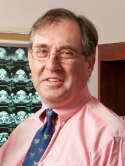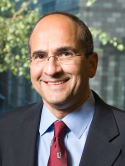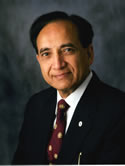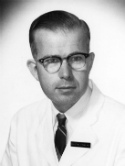Reconstruction of total maxillectomy defects with preservation of the orbital contents Journal Article
| Authors: | Cordeiro, P. G.; Santamaria, E.; Kraus, D. H.; Strong, E. W.; Shah, J. P. |
| Article Title: | Reconstruction of total maxillectomy defects with preservation of the orbital contents |
| Abstract: | Reconstruction after total maxillectomy with preservation of the orbital contents is technically more challenging than when the maxillectomy is combined with orbital exenteration. Reconstruction of such defects should (1) provide support to the orbital contents, (2) obliterate any communication between the orbit and nasopharynx, (3) reconstruct the palatal surface, and (4) achieve facial symmetry and a good aesthetic result. We report our experience in performing reconstructive surgery on 14 patients who had a total maxillectomy and preservation of the orbital contents using nonvascularized bone grafts for reconstruction of the orbital floor and maxilla, in conjunction with a soft-tissue free flap or pedicled muscle flap. The orbital floor was reconstructed using split ribs in six cases (42.9 percent), split calvaria in six cases (42.9 percent), and iliac crest graft in two cases (14.3 percent). A myocutaneous rectus abdominis free flap was used for soft-tissue reconstruction and resurfacing of the palatal mucosa in twelve patients (85.7 percent), and a temporalis muscle transposition was used in two elderly patients (14.3 percent). One patient died 2 days after surgery. Mean follow-up and aesthetic and functional results were assessed in the remaining 13 patients a minimum of 6 months postoperatively. In 9 of these 13 patients (69.2 percent), postoperative radiotherapy was administered. No reexplorations or free flap failures were observed. One rectus flap developed partial necrosis of the skin island intraorally without affecting the final result. All patients had adequate functional vision. One patient had a mild vertical dystopia; there were no cases of enophthalmos. Ectropion was the most common undesirable result and was present in 10 of 13 cases (76.9 percent). It was graded as mild in four cases (40.0 percent), moderate in four cases (40.0 percent), and severe in the remaining two cases (20.0 percent). Speech was considered normal in six cases (46.2 percent), near normal in six cases (46.2 percent), and intelligible in one case (7.7 percent). Chewing function was considered good (soft to unrestricted diet) in all cases except for one patient who was only able to eat a pureed diet. Aesthetic results after immediate reconstruction were considered good in nine cases (69.2 percent) and fair in four cases (30.8 percent). Primary reconstruction of total maxillectomy defects with orbital content preservation remains a complex problem without a perfect solution. The combination of nonvascularized bone grafts for orbital/maxillary reconstruction with a soft-tissue free flap is a safe, reliable, and effective method of maximizing postoperative functional and aesthetic results. |
| Keywords: | adult; clinical article; treatment outcome; aged; aged, 80 and over; middle aged; bone graft; surgical technique; bone transplantation; reconstructive surgical procedures; histopathology; plastic surgery; surgical flaps; postoperative care; follow-up studies; treatment indication; muscle flap; postoperative complication; postoperative complications; disease severity; myocutaneous flap; pedicled skin flap; speech disorder; maxilla; maxilla resection; skin necrosis; evisceration; rectus abdominis muscle; orbit; maxillary neoplasms; ectropion; mastication; humans; human; male; female; priority journal; article |
| Journal Title: | Plastic and Reconstructive Surgery |
| Volume: | 102 |
| Issue: | 6 |
| ISSN: | 0032-1052 |
| Publisher: | Lippincott Williams & Wilkins |
| Date Published: | 1998-11-01 |
| Start Page: | 1874 |
| End Page: | 1884 |
| Language: | English |
| PUBMED: | 9810982 |
| PROVIDER: | scopus |
| DOI: | 10.1097/00006534-199811000-00011 |
| DOI/URL: | |
| Notes: | Article -- Export Date: 12 December 2016 -- Source: Scopus |
Altmetric
Citation Impact
BMJ Impact Analytics
MSK Authors
Related MSK Work







